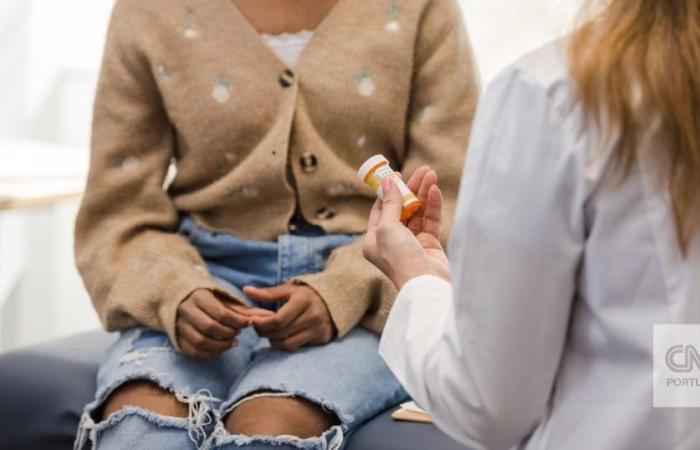Many young people have reported experiencing mental health problems during and after the Covid-19 pandemic. Their experiences are now confirmed by a new study which reveals that the rate of antidepressant prescriptions to this group also increased during the same period.
The number of young people aged 12 to 25 receiving antidepressants was already increasing before the pandemic, but since the Covid-19 outbreak in March 2020, the dispensing rate has increased almost 64% faster than normal in the United States, according to the study published in the journal Pediatrics. (Dispensing, in the context of this study, refers to antidepressants given to patients by retail, mail-order, or long-term care pharmacies; it does not reflect use of the medications once purchased.)
“The differences by sex are by far what caught my attention the most”, reveals the study’s first author, Kao-Ping Chua, about the results. The specialist is a primary care pediatrician and assistant professor of pediatrics at the University of Michigan School of Public Health.
Among female teenagers aged between 12 and 17, the layoff rate increased 130% faster after March 2020, reveals Chua. For young adult women ages 18 to 25, the rate increased by 60%.
“In stark contrast,” the expert adds, “what we see is essentially no change in the antidepressant dispensing rate after March 2020 in young adult males, and a surprising decline in the antidepressant dispensing rate in adolescent males. ”.
Some previous studies have assessed changes in the post-pandemic dispensing rate at the national level, but to the authors’ knowledge, the new study is the first specific to adolescents and young adults and analyzing data beyond 2020.
“During the pandemic, I found myself prescribing antidepressants at a rate never seen before,” says Chua, who decided to carry out the research to help inform the debate on the country’s youth mental health crisis.
“I can’t tell you how many pediatricians have told me they feel like they’re just mental health clinicians right now,” he says.
From 2016 to 2022, Chua and study co-authors found that the monthly dispensing rate increased 66.3%, a trend that rose during and after the pandemic, using the IQVIA Longitudinal Prescription Database. The IQVIA database is a long-term patient prescription database based on retail pharmacy data.
“In the second year of the pandemic, emergency room visits for mental health issues in young people increased, and we saw an increase in visits for attempted suicide or self-harm, especially among adolescent girls,” explains Neha Chaudhary, a child and adolescent psychiatrist at Massachusetts General Hospital and chief medical officer of Modern Health, a mental health care platform for companies that support their employees. She was not involved in the study.
“As a child and adolescent psychiatrist who has closely witnessed the impact of the pandemic on young people’s mental health, the study’s results are not surprising,” Chaudhary admits via email.
Stress factors that affect children
The authors cannot fully explain the results. But in the context of worsening mental health among young people, “it is clear that we would see a similar trend in antidepressant prescription rates, as these medications are often part of the treatment of moderate to severe cases of mental health problems, such as depression,” says Chaudhary.
Furthermore, increasing awareness of mental health and, consequently, reduced stigma, has led to more young people seeking help, he continues, as has exposure to negative current events.
In addition to these factors and the stressors of the pandemic, such as the loss of loved ones, the transition to virtual learning, and the lack of a social life, some unique factors regarding the state of mental health care during the pandemic may need to be considered. with an increase in the dispensing rate of antidepressants.
Getting and keeping an antidepressant prescription has become easier due to the rise of telehealth, as patients previously had to visit their healthcare providers in person, Chua recalls.
But this benefit had its drawbacks. In normal times, for patients with mild or moderate depression, health care providers often recommend a trial of medication-free therapy. But during the pandemic, unprecedented demand for virtual therapy has resulted in long wait times, making recommending therapy just less viable. As a result, there was a growing tendency for practitioners to prescribe antidepressants as a bridge, as they could not assume that patients could quickly initiate therapy.
The differences in results between male teenagers or young adults do not prove that their mental health has improved – they may just point to the fact that men are increasingly disconnected from the mental health system, which is “a really worrying possibility.” , warns Chua.
Choose the best treatment
Experts discourage stigmatizing the need for or use of medications. The use of antidepressants is common, says Chua, “and you shouldn’t feel weird about taking them if you need them.”
“These medications are extremely effective in many cases,” he adds. “They allow people to feel a little more normal and endure the ups and downs of life. People’s quality of life, their mood and rates of self-harm improve a lot.”
In some cases, antidepressants can even save lives, says Chaudhary.
However, “there are understandable concerns regarding antidepressants,” says the expert. “They are not something that starts trivially. For young people, there is a black box warning about increased suicidal thoughts after starting antidepressants.”
Potential side effects usually disappear after a few weeks; If this does not happen, your doctor may recommend a different medicine.
But given the risks, “parents have to be willing to have a frank conversation about the pros and cons of antidepressants when their children are having mental health problems and, honestly, not just shut down the subject or pressure them in any way,” adds Chua.
Dramatic changes in children’s behavior or mood—such as sleep, social life, attitude, school performance, ability to concentrate, or interest in activities—may indicate a need for antidepressants, but a pediatric psychiatrist can recommend the best one. treatment plan and answer any questions about medications, experts say.
Please be aware that antidepressants are usually only started when the benefits outweigh the risks.
“Young people are struggling and it is up to us to help them”, concludes Chaudhary. “If you are a young person or have a young person in your life, consider checking in to see how things are going. All it takes is one person who cares to change the trajectory of someone’s life.”






